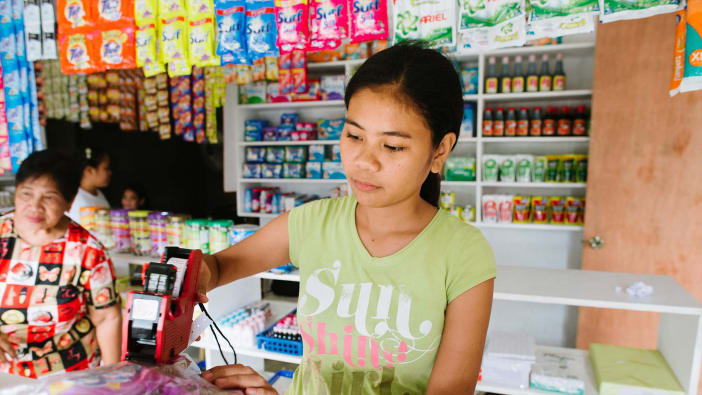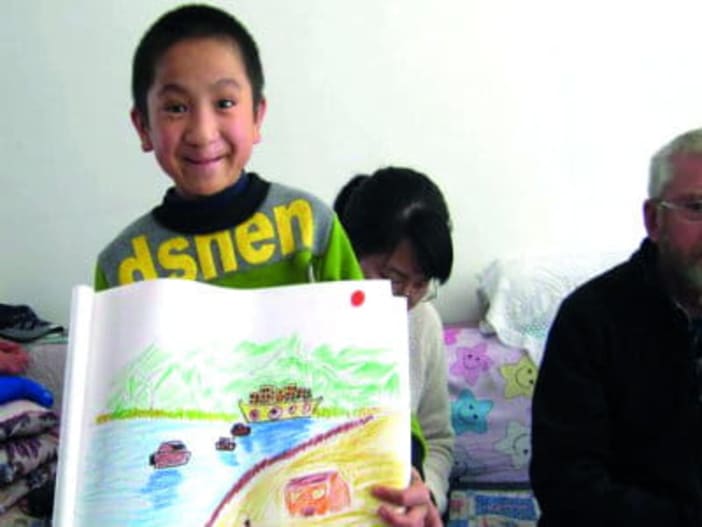by Karl Dorning.
The lack of job opportunities in their home communities and the need to earn income have caused considerable migration from Myanmar (Burma) to Thailand. In some communities over half the young people migrate. However, there are many risks which migrants to Thailand face. These include drug trafficking, HIV/AIDS, prostitution, arrest and deportation. Knowledge about the risks of migration is widespread, yet migration continues.
The most obvious action might be to try to keep young people in their communities through:
- creating job opportunities
- raising better awareness of the risks of migration to Thailand.
However, World Vision Myanmar wanted to involve the community in identifying the causes of the problem and possible solutions. They wanted them to understand why some young people decide not to migrate. This might then help to identify appropriate and effective strategies to stop so many young people migrating.
A community near the border was select-ed, from where over half the young people migrate. Techniques which encouraged all community members to share and participate, such as drawing maps of their area, were used to identify the key issues. It was found that:
- Boys migrate as seasonal workers, while girls migrate more permanently.
- Typical migrants are aged 14 to 18.
- The key reason for migration is the need to earn income.
- Most migrants are from poor or medium income families.
- Agents from companies in Thailand come regularly to the village to recruit youth.
- A number of migrants had returned and died of AIDS, yet migration continues.
A number of young people who had never migrated to Thailand were identified. Again, participatory techniques were used with these young people to learn about their ethnic, family and educational backgrounds, attitude towards migration, current occupation, leisure activities and social support networks. It was found that:
- Their economic situation was the same as that of the migrants (their families were either poor or middle income).
- They were engaged in the same occupations as those who migrated.
- They had the same education level.
All of these young people had decided not to migrate. Their reasons included: discouragement by parents and the fear of HIV/AIDS, arrest by police, losing contact with family, drug trafficking, drug addiction or being bullied by employers. One young man said he was ‘proud that he had stayed in his own community’. Others said that although some had migrated for economic reasons, their families were also still struggling for survival.
They all had good relationships with other non-migrant youth in their community. It is likely that peer pressure is a factor, as many people migrate with groups of friends.
Another key factor that emerged was that all those who did not migrate were very close to their parents. They said their parents had encouraged them to stay at home.
The research concluded that the only real differences between young people who migrate and those who stay at home were the social support received from friends who were also not migrating and the attitude and support of their parents.
Possible action
Rather than creating job opportunities and raising awareness of the risks, the research showed that the real priorities are to:
- form a parent support group which could inform other parents
- encourage pride among young people staying in their community
- encourage young people who have decided not to migrate to talk with younger youth who have not yet made a decision about migration.
Positive aspects of the approach
The participatory approach of the research allowed the community to consider the issue in a whole new way. People were able to reconsider their original strategies and design new ones that may prove more effective. The young people who had not migrated were empowered following the research and felt they had something important to contribute to their community. Because the process was participatory, interest in the issue, energy and hope were rapidly increased, where before there seemed to be little.
World Vision Myanmar has found this participatory research to be very useful in mobilising the community. We encourage others to try the approach themselves.
Adapted from a research presentation. Karl Dorning works with World Vision, Myanmar. E-mail: [email protected]









